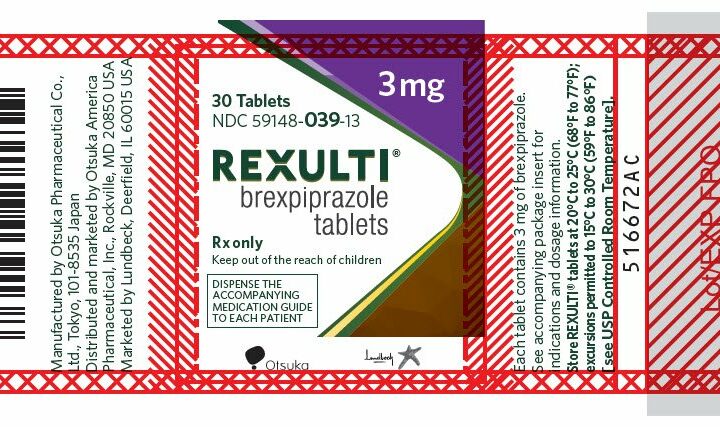Rexulti (brexpiprazole) shares positive trial results for treating agitation in Alzheimer's.
On Monday, revealed that a phase 3 study of brexpiprazole — brand name Rexulti — in Alzheimer’s patients showed that the drug for major depressive disorder reduced agitation in Alzheimer’s dementia at a statistically significant rate compared to a placebo.
In 2015, the Food and Drug Administration approved brexpiprazole for schizophrenia and major depressive disorder. The following year, the FDA had granted it fast-track status as a possible Alzheimer’s treatment. With the new progress, the drugmakers — Lundbeck in Denmark and Otsuka in Japan — anticipate filing an FDA application for approval before the end of this year.
A long-sought alternative to general antipsychotics
Among dementia’s behavioral and psychological symptoms agitation, along with psychosis, are associated with accelerated caregiver burden, earlier long-term care facility placement, progression of the disease progression — and they’re linked to an increase in tau tangles — one of Alzheimer’s disease’s key biomarkers — in the brain.
So far, however, there is no safe, effective treatment for these common symptoms approved specifically for use in Alzheimer’s. So, to treat Alzheimer’s agitation and psychosis, it’s not unusual for more general antipsychotics to be prescribed, but — while widely used (and alarmingly, widely misused) — but there are a problems and risks with antipsychotics in Alzheimer’s, too. For starters, long-term use of these drugs (i.e. more than 12 weeks) is associated with an increased risk of death or with cerebrovascular events.
Antipsychotics are also linked to an increased risk of falls, and they have been found to as much as double the speed at which brain function deteriorates in cases of neurodegeneration. Further, they have been linked to higher rates of hospitalization among people living with dementia, and when it comes to ICU delirium, they have been found to be ineffective.
Thus, there’s a scramble to develop safer, better symptomatic treatments. However, that process has been riddled with one setback after another. A panel of FDA advisers just this month recommended a rejection for pimavanserin (Nuplazid), another candidate “atypical antipsychotic” to treat Alzheimer’s symptoms, in this case hallucinations and delusions resulting from Alzheimer’s-related psychosis. A decision date has been set for August 4, 2022.
According to Dr. Pierre Tariot, director of Banner Alzheimer’s Institute, there is a huge unmet need for an effective treatment of the hallucinations and delusions of dementia.
“At some point in the course of somebody’s dementia, there’s virtually 100 percent probability that they will experience significant and distressing neuropsychiatric signs and symptoms, so in other words, [there is a] 100 percent lifetime risk in the course of the illness.” Tariot told Being Patient in a past interview. “And among those, psychotic features — that is to say delusions and/or hallucinations — loom large [in over] 40 to 50 percent or so of those folks.”
What’s next for brexpiprazole
The trial followed 345 people living with Alzheimer’s, ages 55 to 90 for a period of 12 weeks, measuring levels of agitation with the help of their caregivers, using the Cohen-Mansfield Agitation Inventory scoring system.
The results pooled two treatment groups—one that received a 2 mg daily dose, while the other got 3 mg per day. While no new safety flags were observed in either group, full study results have yet to be revealed, so it’s too soon to know how safe and effective the drug will be. In its current use, Rexulti does carry a black-box label warning of increased risk of death in older adults.

Nuplazid (pimavanserin) is FDA approved for Parkinson’s Psychosis and an additional approval for Alzheimer’s psychosis was not recommended by FDA AdComm – this is not the same indication as Alzheimer’s agitation
This article is misleading. Pimavanserin was not recently rejected by the FDA. A CRL was issued last year in April. However, following several meeting with the FDA, they agreed on an AdCom reviewing the data on June 17th. No decision was made by the FDA as of yet.
Joseph, thank you for your comment! I have issued a correction.
My husband is in a nursing home last stage Alzheimer’s. He is bed bound. He continuously screams yea yea yea. The doctor offers no drug to help his stress. How do I get his doctor to try this drug?